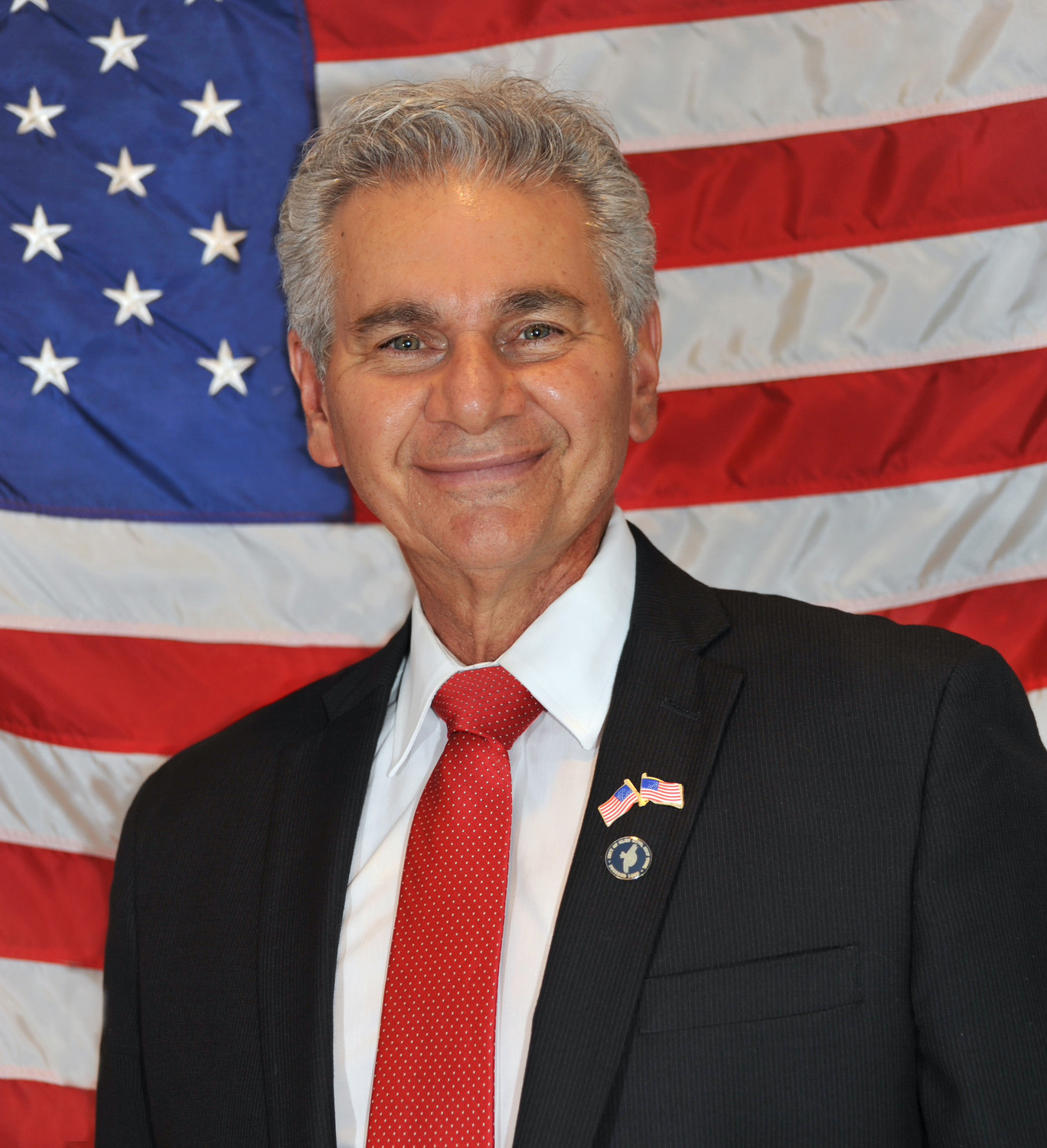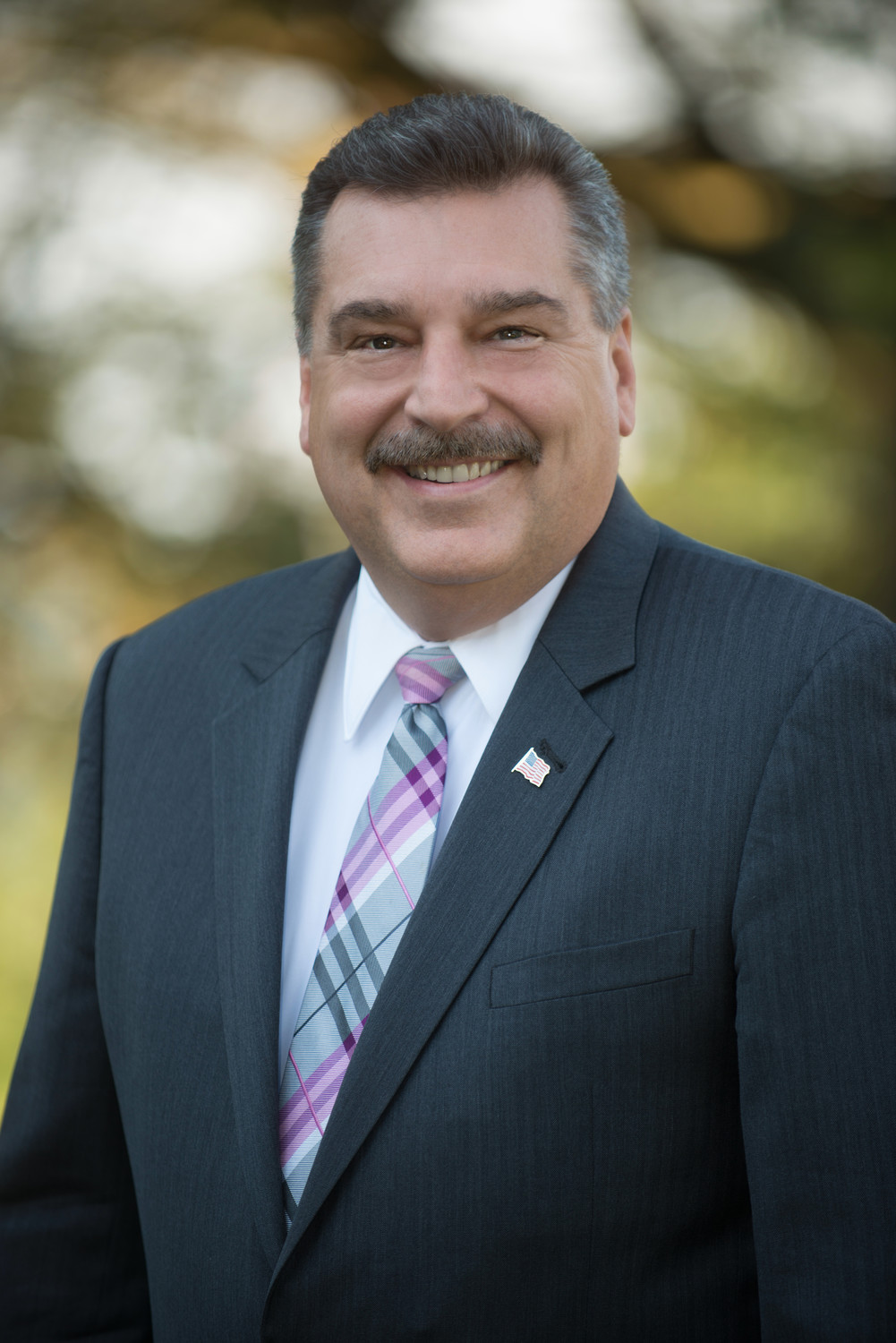Wednesday, April 24, 2024
 50.0°,
Overcast
50.0°,
Overcast
One time colleagues, now challengers
The race is on for mayor of Glen Cove
Glen Cove needs a strong leader. With the new developments — Village Square, The Villa, and Garvies Point — the city is changing. Mayor Reggie Spinello would like to remain to continue to move the city forward. Tim Tenke, a 12-year City Councilman, believes the time is ripe for him to take over the reins. Both have practically the same vision for the city, but their journeys are different.
The Glen Cove Herald Gazette asked the candidates a few questions, which we believe are of the utmost importance. We hope their answers will help voters make an informed decision on Nov. 7.
Glen Cove Herald Gazette: While there are plans to attract new residents with housing projects including the Garvies Waterfront, Village Square and The Villa, what are your plans to attract and keep more businesses?
Reggie Spinello: It all goes hand in hand. More residents mean more dollars infused into the local economy. The waterfront project will infuse $50 million into the local economy and create over 1,000 jobs. The Village Square project will create over 225 construction jobs and 65 full time jobs as a result of the project and the people who will reside there. That in turn creates another $6 million into our economy. Additionally, no administration has done as much as we have to attract new businesses and retain existing ones. At last count (not including Garvies and Village Square), we have attracted 70 new businesses that have created over 600 new full and part time jobs since my administration began.
Timothy Tenke: Glen Cove should return to being the commerce center of Nassau’s Gold Coast. Our residents and neighboring villages rely on the city to grow responsibly and be the place to go for shopping, entertainment, and services. I would form a coalition between the Glen Cove Business Improvement District, the chamber of commerce and mayor’s office to attract new businesses to our city. By moving forward and attracting new and vital businesses, as well as keeping our trusted and loyal businesses here, we can once again become the center of commerce on the North Shore. Our downtown is too important to allow it to stagnate. It will be our gateway to not only the waterfront but to other areas of the city such as the parks, beaches and recreation. With the coalition’s assistance and expertise, I believe we will be able to attract the types of businesses that our city needs.
HG: Some residents are concerned that the Garvies project will be a burden on taxpayers. How will you prevent that from happening?
Spinello: The property that the waterfront project sits on has not paid taxes for the last 30 years. One of my priorities was to make sure that every taxing district had revenue that far exceeded expense from day. (???) Over the next 40 years the city will receive over $225 million in revenue, our school district, $300 million, and the county, $100 million in revenue. This is a cash positive event for all tax districts from day. (??)Additionally, the city was able to recoup the millions of dollars it paid out in expense over the years in anticipation of the waterfront development closing. Finally, the bonds that was issued for the city’s infrastructure costs comes at no risk to the taxpayers. It’s a none recourse bond, which means that the city has no liability or responsibility to repay one single cent of the bond if there was a default by the property owner.
Tenke: The Garvies Point project is the largest development in the history of our city. It was supposed to take land with no taxable value and place it on the tax roll to benefit the taxpayer adding significant revenues to the city (school district and library) budgets. Unfortunately, bad deals by the Spinello administration with developers are hurting this growth. The loss of tax revenue over the next 40 years will be more than $280 million. Glen Cove is a very attractive place for developers and businesses and I believe Glen Cove has been sold short by the current administration. Corporate handouts on the back of taxpayers cannot be tolerated. A Tenke administration will hold the line on sweetheart deals with developers. We all understand that when dealing with a project as large as Garvies Point some concessions may be necessary. However, the interests of the residents must be taken into account when weighing the cost of those concessions to the taxpayer against the benefit gained by the developer.
HG: The lack of affordable housing is currently an issue in the city. What plans do you have to provide it, where would you consider building it and how soon do you believe you’d be able to solve the issue?
Spinello: Exploring potential policy changes that would expand the basic requirements of the Long Island Workforce Housing Act for our city beyond the 10 percent set aside for new developments at 80-130 percent AMI and provide incentives for the provision of attainable housing. This may take different forms that will need to be researched and vetted — a future project my office can undertake — but may include increasing the percent of set-aside of overall units (potentially somewhere between 15-25 percent) and at potentially lower AMIs.
A driving factor behind this will be to look at what the market will bear here. Density bonuses are one way of providing incentives as well as other forms of relief for worthy projects. Project location is important and we should look to properties located close to mass transit. The city and agencies can also continue to actively work with non-profit partners and for-profit developers that specialize in attainable housing and have a proven track record with these types of projects.
Tenke: The focus on development has been tilted towards new high end residential space ignoring the need for next generation housing. Our focus will be on making sure our children and grandchildren can afford to live here by encouraging development that is in the best interests of residents. Currently, not enough is being done to address the severe shortage of affordable housing. I would like to see a greater number of new projects offer a higher percentage of affordable units for the total project when city involvement is required. I would also encourage smaller projects, which are designed to build affordable housing exclusively. The revitalization of Lee Gray Court is an example of the types of projects that would fall into that category.
HG: What do you believe is the most important issue facing the city and how will you solve it?
Spinello: There is no one single issue that’s most important. The city must continue to provide for its residents. Our needs are many, but no different from the needs of other communities. Our focus should be to provide our residents with a good quality of life, essential services, safe neighborhoods and housing options for our youth, seniors and those underserved. Additionally, we must help provide job opportunities close to home, maintain our parks, recreation and senior and youth facilities. It’s important that we provide these services for the lowest price possible, which we have been able to do by improving our finances, expanding our tax base with new development, paying down our debt and stabilizing our taxes.
Tenke: All issues are important; it’s just a matter of your perspective. The issue I feel is important is the financial stability of the city. On more than one occasion, the New York State Comptroller’s Office has criticized Glen Cove for not doing more to fix its financial crisis. In fact, Glen Cove has been named one of the most fiscally stressed municipalities in New York State. More needs to be done.
Budgets are done on a yearly basis. They need to be adhered to. There are only so many “one-shot” revenue deals that can be done. There is a finite amount of space in our city that can be developed to increase revenue. I for one would like to see some open space remain in Glen Cove.
The city must function within its limits. Nothing is being saved for that proverbial “rainy day.” The amount of debt the city carries is enormous. Our debt service consumes a huge amount of our budget. Yes, I understand that the cost of services, insurance, fuel, and contractual obligations go up yearly. That means that you have to budget for that. We can do better. We must do better. We will do better. The future of our city depends on it.
HELP SUPPORT LOCAL JOURNALISM
The worldwide pandemic has threatened many of the businesses you rely on every day, but don’t let it take away your source for local news. Now more than ever, we need your help to ensure nothing but the best in hyperlocal community journalism comes straight to you. Consider supporting the Herald with a small donation. It can be a one-time, or a monthly contribution, to help ensure we’re here through this crisis. To donate or for more information, click here.
Sponsored content
Other items that may interest you









